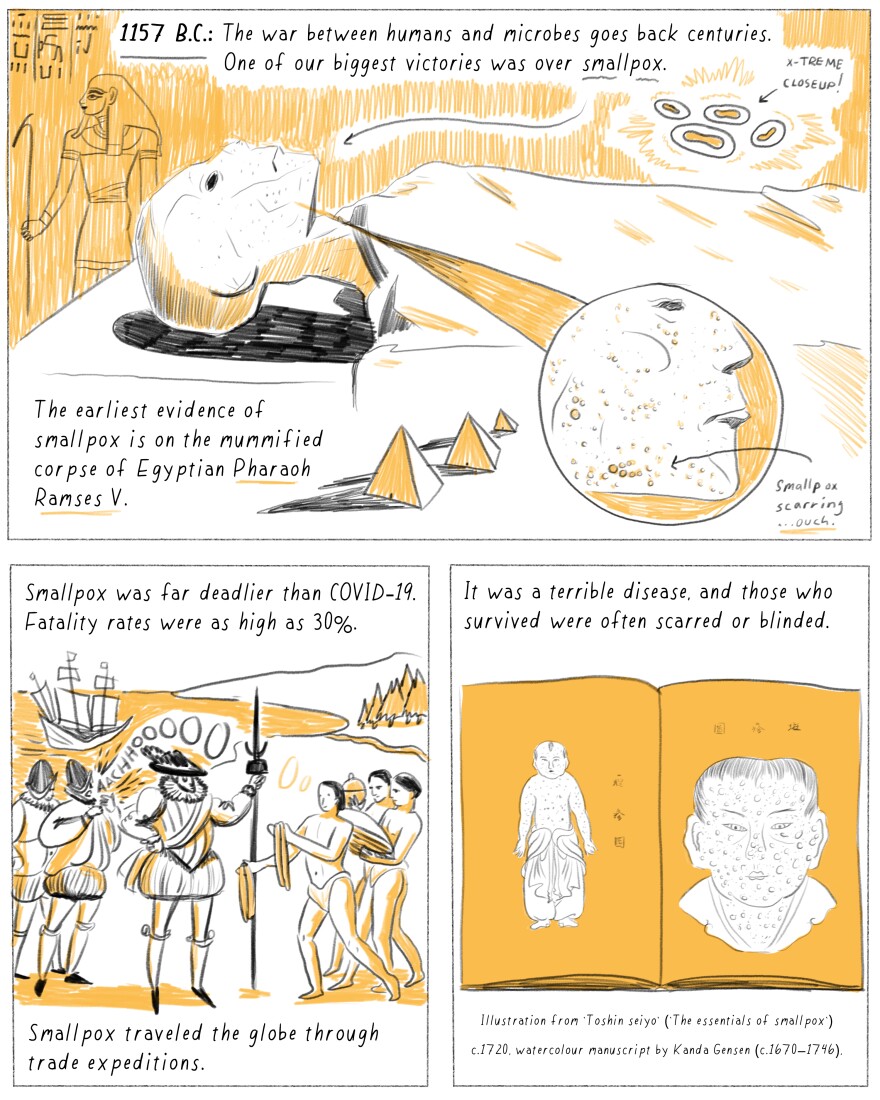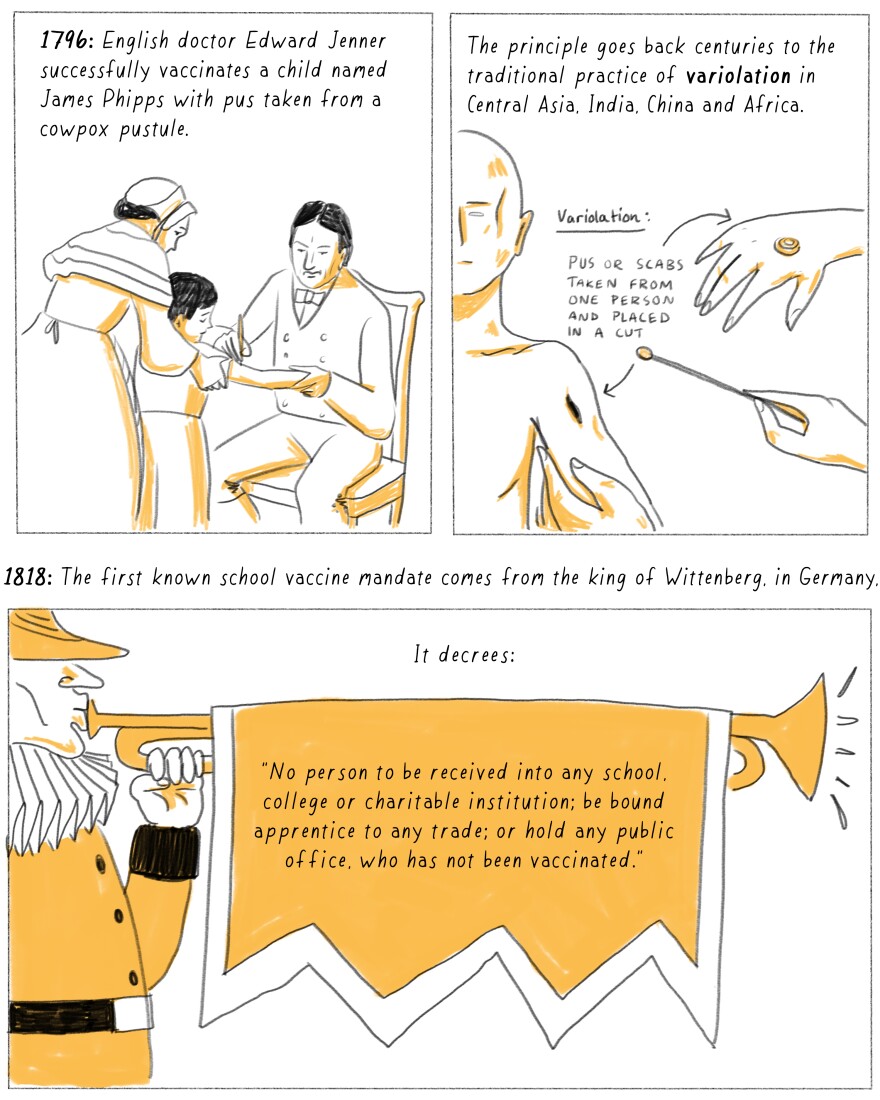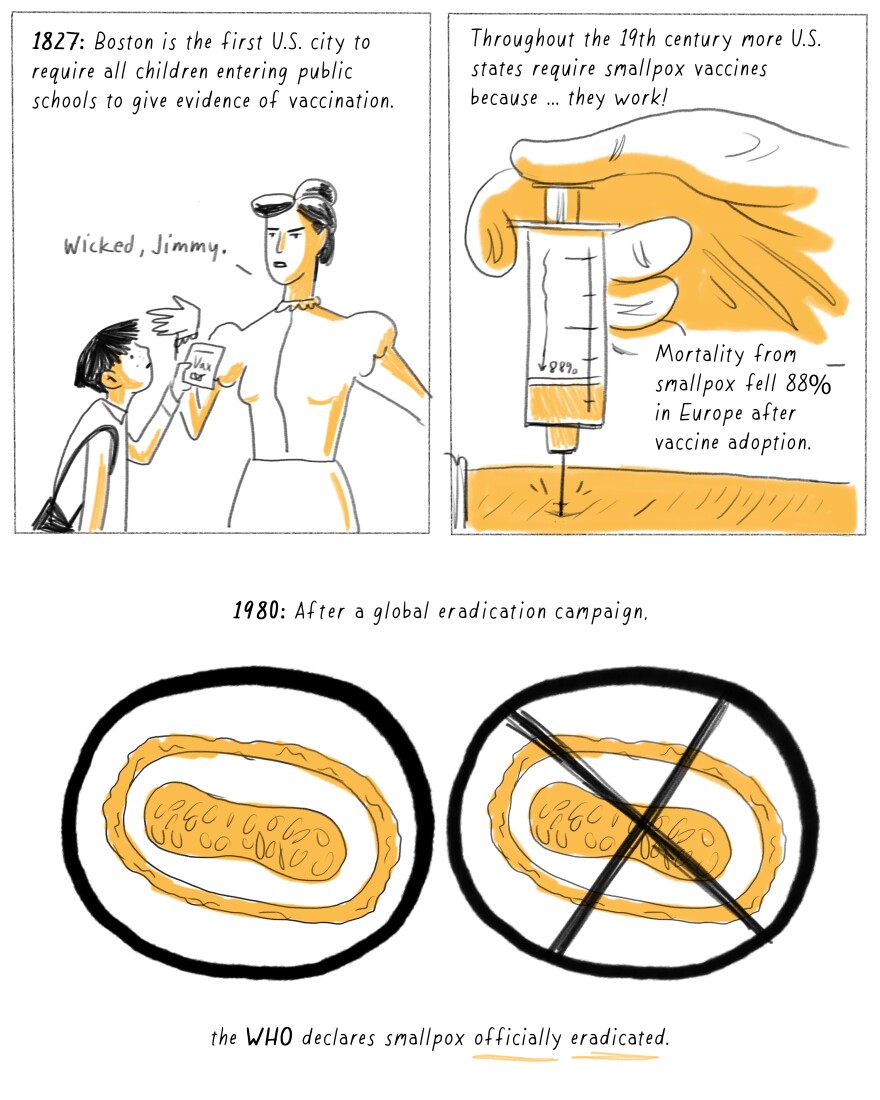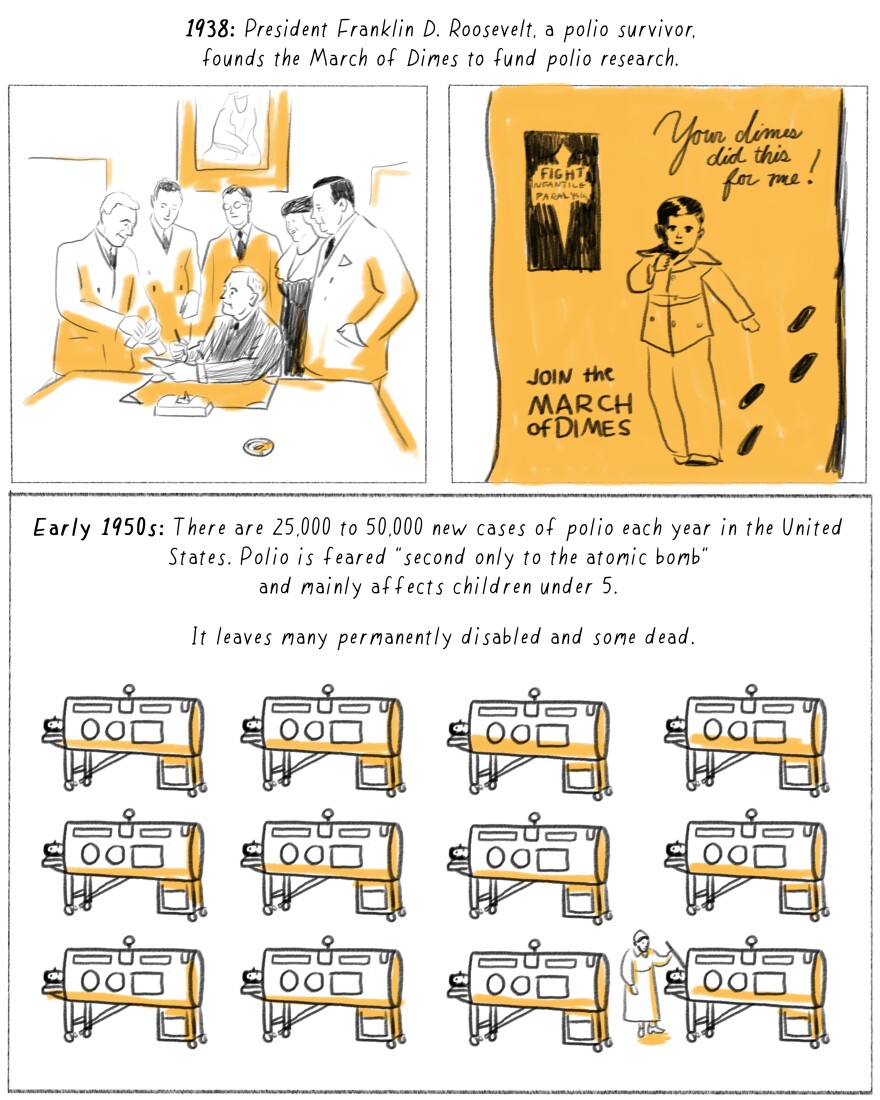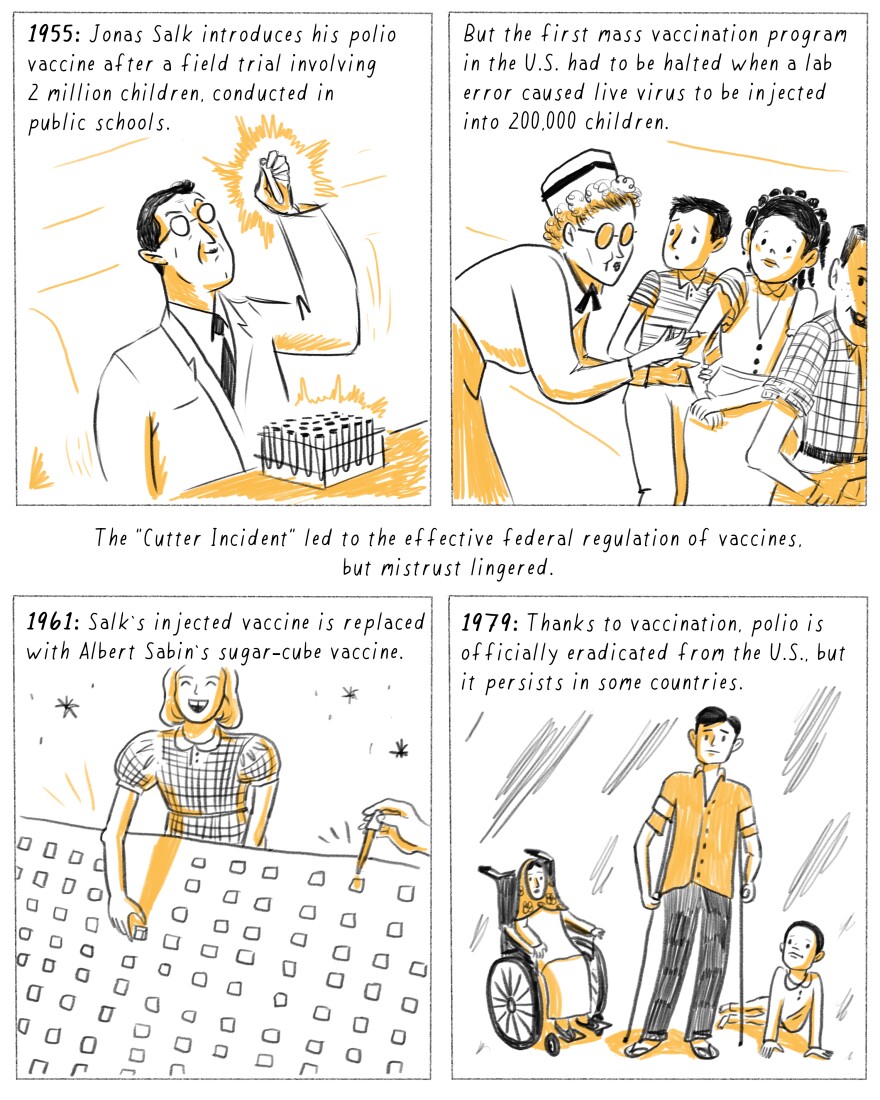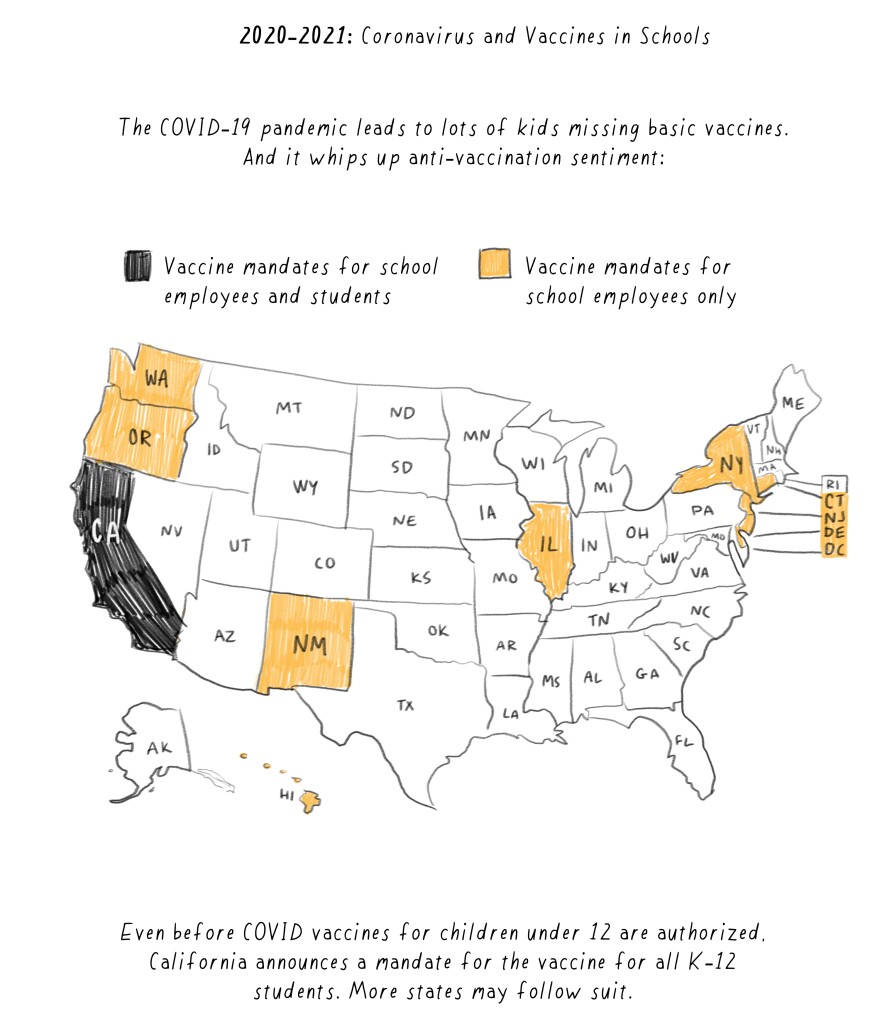The first time kids had to get a vaccine to go to school was more than 200 years ago. The disease? Smallpox.
For the past four decades, all 50 U.S. states have required that parents, if they want to enroll their children in any school, public or private, must vaccinate them against contagious diseases like polio and measles. The reason is simple: High rates of vaccination dramatically cut deaths and have all but eliminated some diseases.
But as long as there have been vaccines, there have been people who oppose them, formerly known as "anti-vaccinationists." They have brought many legal challenges over the years, but the U.S. Supreme Court ruled on the constitutionality of school vaccine mandates nearly a century ago, and that has pretty much been upheld to this day.
That said, there's also a strong tradition of granting exemptions to vaccine requirements based on religious and philosophical beliefs. There has also, at times, been lax enforcement and an unwillingness to punish students by keeping them out of school.
But when diseases break out or come back, so do vaccine campaigns and the really strong stuff: mandates.
Scroll on to take a look at a historical timeline of vaccines in schools:
Copyright 2023 NPR. To see more, visit https://www.npr.org.
